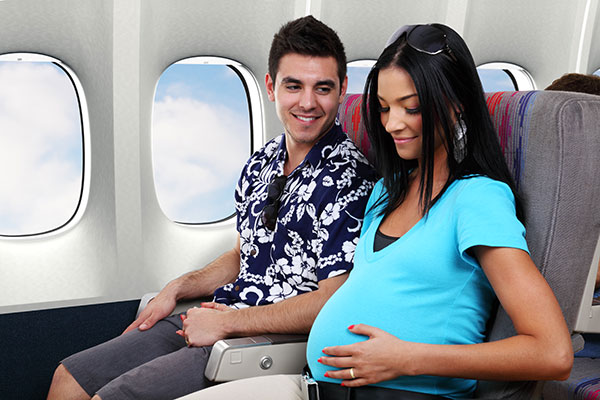How to travel during pregnancy (according to an obstetrician)
Travel is one of life’s great pleasures: seeing new places, experiencing the history and culture of other countries and discovering delicious cuisines. But how does globetrotting work if you are pregnant? Dr. Renee Wong explains.
Timing is everything
The optimal time to travel during pregnancy is in the second trimester (13-28 weeks). Many women find that the second trimester is the ‘easier’ of the three. The morning sickness and fatigue of the first trimester have often subsided and the ‘bump’ and all its associated fluid retention are yet to come.
Additionally, the chance for miscarriage is higher during the first trimester, and the chance of premature labour increases after 28 weeks. While travel doesn’t necessarily impact the chances of these things occurring, it is generally safer to be closer to home if they are a concern for you. Air travel is also restricted during late-stage pregnancy, something we’ll cover in more detail below.
For travel at any stage during pregnancy, travel insurance that covers pregnancy is strongly recommended. Some policies do not, so make sure to check with your provider.
Where to?
Put simply, it’s best to choose a destination with clean water and zero risk of mosquito-borne virus. This takes most developing nations off the table, but pregnant women should always check on these two factors before booking any travel. Information on these issues and more can be found at the Australian Government’s Smart Traveller website.
Mosquito-borne viruses such as malaria and Zika virus have been associated with miscarriage, fetal growth restriction, small head size and even stillbirth. If travel to a developing country is unavoidable, consider taking necessary precautions such as mosquito repellant, sleeping nets, protective clothing and recommended vaccinations.


Travelling by air
Most domestic airlines will not allow pregnant women to travel after 36 weeks, while the rule for international airlines tends to be 32 weeks.
Flying is generally safe during pregnancy, although the risk of Deep Vein Thrombosis (DVT) is increased with air travel and pregnancy. To minimize
risk, keep hydrated during air travel, avoid alcohol and caffeine and walk around the cabin as much as possible. For additional protection, consider compression stockings as well as blood thinning medication such as aspirin to prevent clots.
Keep in mind that many airlines (both domestic and international) require a letter stating that you are safe to travel by air, dated within 10 days of departure. Ensure that you request this from your obstetrician prior to travel.
By land or by sea
Long, uninterrupted periods of travel can cause DVT, even if you don’t take to the skies. Try to take a break every two hours to stretch during a long road trip.
When in the car, the seat belt lap sash should sit comfortably around your hips and under the ‘baby bump’. The shoulder strap should be above the abdomen and between the breasts. If you are driving while pregnant, sit as far back from the steering wheel as possible to minimise the airbag impact in case of an accident. If an accident does occur, always seek medical advice.
While short trips on boats or ferries are generally safe, keep in mind that sea travel can increase nausea and vomiting. Most cruise liners will not allow women over 28 weeks pregnant to travel.
Get the right information
It is possible to travel while pregnant, both safely and enjoyably. Do your research and, when planning a trip, always check with your obstetrician to ensure that there are no specific medical or obstetric concerns that could impact your ability to travel. To discuss any and all concerns about travel during pregnancy, please speak with your obstetrician or doctor.
Dr. Renee Wong (womensogs.com.au) is an obstetrician at Frances Perry House. Dr. Wong enjoys keeping active and trekking around the world, and supports her patients in doing the same.
